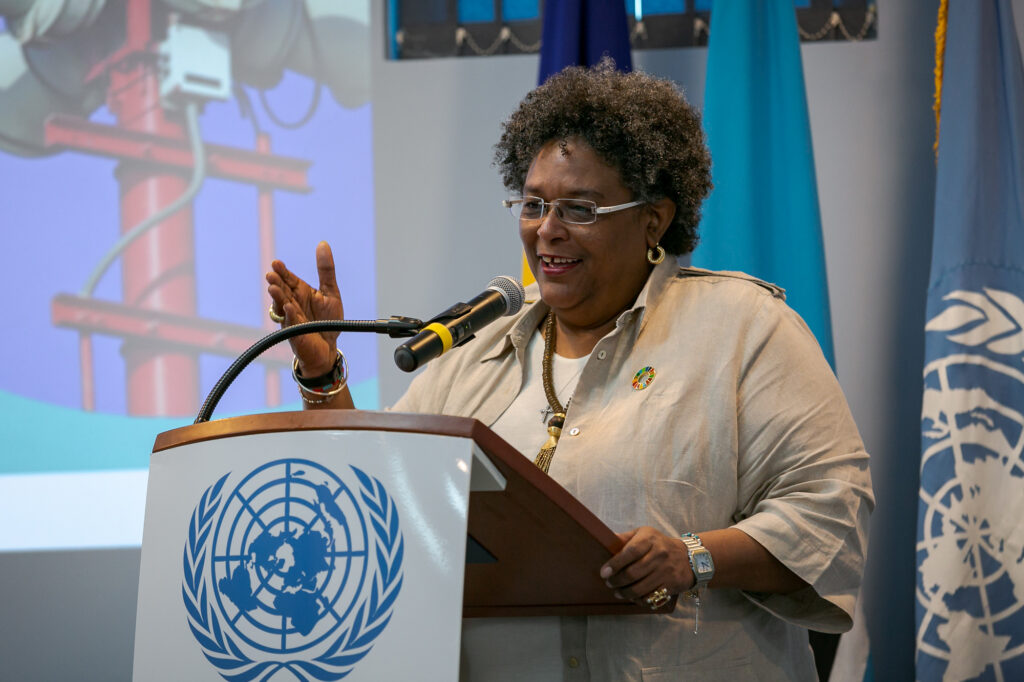Student Workshop
Learning from the Bridgetown Initiative

On the 2nd of May, the Global Studies department held a workshop for students from the MA programs in International Studies and Global Area Studies. Under the headline The Practice of Climate Governance: Negotiating the Bridgetown Initiative in Global Institutions, students were asked to roleplay as climate negotiators based on research into the Bridgetown Initiative as proposed by Barbados’ prime minister, Mia Mottley, at the COP27 in Sharm El-Sheikh on November 7th, 2022.
The Bridgetown Initiative has been a key agenda and point of discussion in global climate policy since it was proposed at COP 27. At its core is the goal of securing climate finance for the most vulnerable countries in the world. Mixing climate financial and justice perspectives, the initiative has been a rallying point for many Global South countries but has also been taken up by transnational NGOs and civil society groups, as well as some acceptance among the countries of the Global North.
The aim of the workshop was to help students get a deeper understanding of the issues and contestations at the heart of climate governance, by getting into this key new agenda. The workshop consisted of an assignment following three steps.
First, students were asked to research the Bridgetown Initiative within the relevant landscape of global governance. Central questions were: Where, when and by whom was the idea discussed? Who supports it? Who remains more silent? By answering such questions, students got an overview of the initiative and its placement within global climate governance.
Second, students were assigned a region or country whose perspectives and positions on the matter they would present at the final debate. This step was all about getting into what the initiative meant for specific global actors and understand what was at stake for them. If assigned India for example, students would need to dig into India’s official positions on the matter, as well as understand their role in global negotiations and what they might seek to get out of negotiations – both officially and behind closed doors.
Finally, based on these initial research steps students were asked to prepare a presentation for the final debate. Presenting their country or region, they would lay down their arguments and represent their interests within the context of global climate governance. Students would get to both present their own country’s perspective and then listen to other countries’, getting a glimpse at what negotiation of climate governance looks like at the global level.
The result was a task that helped students of both MA programs better link their theoretical and academic knowledge to the real life problems and practices of global governance. Such a task will help students better reflect on the links between theory and practice, as well as give them important transferable skills within the field of climate negotiation in particular and negotiation skills in general.